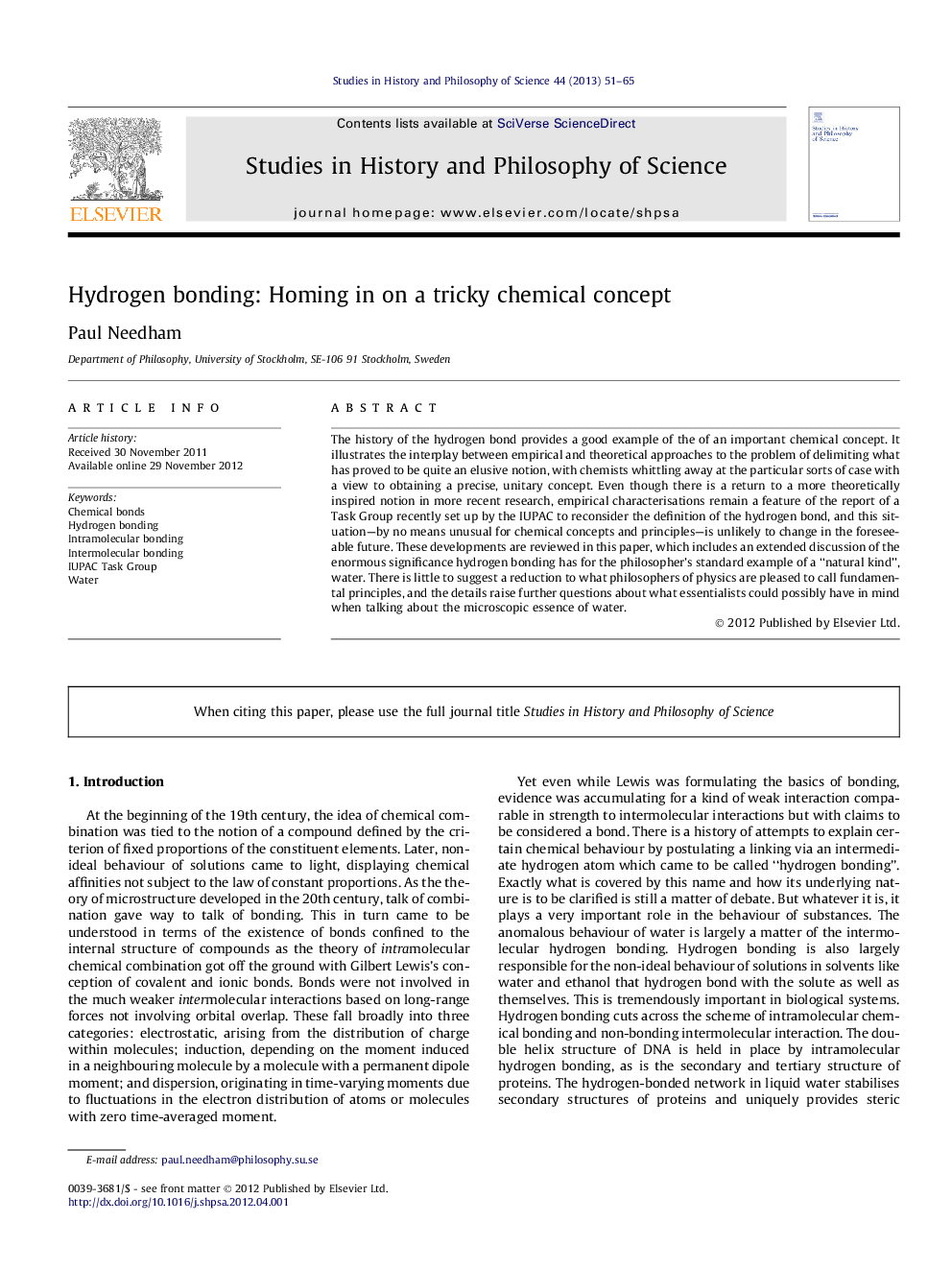| Article ID | Journal | Published Year | Pages | File Type |
|---|---|---|---|---|
| 1160285 | Studies in History and Philosophy of Science Part A | 2013 | 15 Pages |
The history of the hydrogen bond provides a good example of the of an important chemical concept. It illustrates the interplay between empirical and theoretical approaches to the problem of delimiting what has proved to be quite an elusive notion, with chemists whittling away at the particular sorts of case with a view to obtaining a precise, unitary concept. Even though there is a return to a more theoretically inspired notion in more recent research, empirical characterisations remain a feature of the report of a Task Group recently set up by the IUPAC to reconsider the definition of the hydrogen bond, and this situation—by no means unusual for chemical concepts and principles—is unlikely to change in the foreseeable future. These developments are reviewed in this paper, which includes an extended discussion of the enormous significance hydrogen bonding has for the philosopher’s standard example of a “natural kind”, water. There is little to suggest a reduction to what philosophers of physics are pleased to call fundamental principles, and the details raise further questions about what essentialists could possibly have in mind when talking about the microscopic essence of water.
► The origin of hydrogen bonding is traced as an intermolecular interaction. ► The possibility of intramolecular hydrogen bonding complicates the picture. ► Older definitions reviewed and recent IUPAC Task Group definition discussed. ► Unity of the concept saved by accommodating empirical and theoretical principles. ► Doesn’t point in direction of a theoretical reduction.
